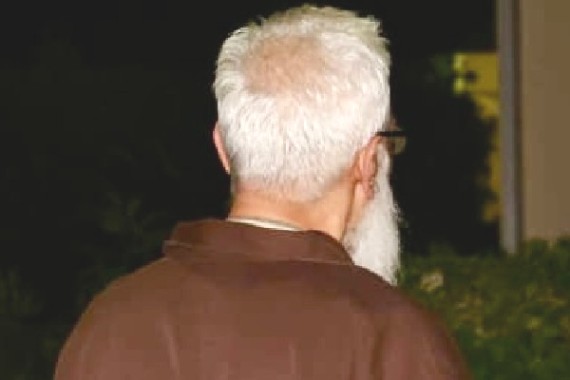




















Monday, Apr 14, 2025 23:00 [IST]
Last Update: Sunday, Apr 13, 2025 17:26 [IST]
NEW DELHI, (IANS): Given that Tahawwur Rana, a key conspirator of 26/11, was
reluctant to stand trial in India, his interrogators in NIA suspect that the
mention of Parkinson’s and 32 other diseases in his medical history could be a
deliberate attempt to justify his fading memory to block direct answers related
to the 17-year-old deadly terror attack.
Rana may appear or pretend to be sick and tired, but
mentally, he is very alert and sharp, said an official, adding that he is being
questioned on sleeper cells and funding of his operations and, visit to India
before the Mumbai attack.
While NIA sleuths continue to question Rana for about
three hours daily, he is also subjected to medical checks every 48 hours, said
an official.
Rana’s stays in Delhi, Hapur and Agra in 2008 are being
seen with suspicion by the NIA, whose sleuths want to extract information from
him about his Indian aide, identified as “B”, and Indian relatives of his wife,
Samraz Rana Akhtar, who accompanied him during his visit.
Rana had also visited Mumbai with his wife and stayed at
the Taj Mahal Palace Hotel, which became a target of the attack that killed 166
people. The couple also visited Kochi and Ahmedabad.
Investigators are now questioning him on whether these
trips were part of a reconnaissance mission to carry out a Mumbai-like attack,
aimed at attracting optimal international attention.
Sources said Rana’s high situational awareness and
elaborate groundwork before landing in India can be gauged from his demand
related to the appointment of defence lawyers, request to the judge for medical
assistance and discussion with defence lawyers to raise the issue of his rights
as an accused.
“He sought non-famous lawyers and asked the court to
restrict them from talking to the media,” said a person privy to the court
proceedings.
After the court deputed lawyers Piyush Sachdeva and
Lakhshya Dheer, both from Legal Services Authority, he asked them to mention in
court his rights, as an accused, under the US Constitution’s Fifth Amendment.
The Fifth Amendment to the US Constitution guarantees
several rights related to criminal procedures and property rights. It includes
the right to a grand jury indictment for serious crimes, protection against
double jeopardy, the privilege against self-incrimination, and the guarantee of
due process before property can be taken for public use.
While opposing Rana’s extradition to India, his lawyers
in the US had tried to raise the issue of his poor health and also questioned
the logic behind making him stand trial for the second time (now in India),
after he got acquitted of similar charges in the US.
His lawyer John D. Cline opposed his extradition,
claiming, “Extraditing Rana to face the death penalty in India would set a
shocking precedent that would call into question the finality of what has until
now been sacrosanct: acquittal by a jury of ordinary American citizens
following a full and fair trial.
NIA investigators may also try and take Rana to other
cities, after taking permission of the court, indicated an official.
The 64-year-old Pakistani-Canadian and his 26/11
co-conspirator David Coleman Headley joined hands with Pakistan-based terrorist
groups and ISI, executed the Mumbai attack that started on November 26, 2008
and lasted till November 29, leaving 166, including six US nationals, dead.
The terrorists who sailed into a fishermen’s colony in
Mumbai on a boat fanned out in the city and conducted shooting and bombing at
12 different locations. They were carrying layout plans and blueprints of their
four main targets – Chhatrapati Shivaji Maharaj Terminus, Taj Mahal Palace
hotel, Oberoi Trident and Nariman House.
